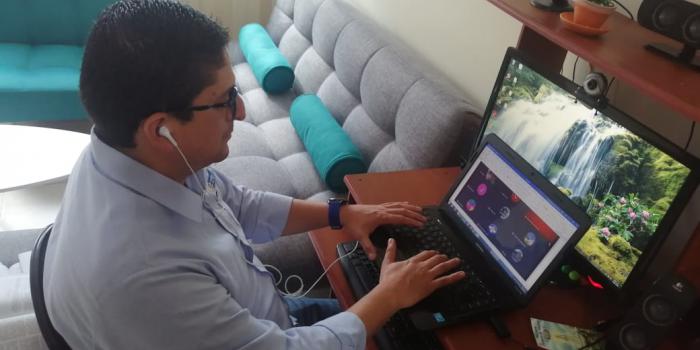
Boyacá municipalities review guidelines to apply public policy
In this central department of the country, the entities and mayors of 17 municipalities have met in Transitional Justice committees to define routes of assistance to victims.

The Economic, Social and Ecological Emergency in which the country finds itself due to the COVID-19 pandemic, has not been an impediment to the holding of the Territorial Committees of Transitional Justice (CTJT), in which the Victims Unit, in the department of Boyacá.
Making use of new technologies, the Central Territorial Directorate of the Unit has been accompanying the mayors, the Participation tables and other actors, in the spaces in which the entity's National Territory Coordination implements the strengthening of the incorporation of Policy of Victims (PPV) in local Development Plans to guarantee prevention, protection, care, assistance and comprehensive reparation to the population surviving the conflict.
“We continue to work and articulate the missionary processes of the Unit and comply with each of the actions that allow us to guarantee articulation with the territory so that victims have the tranquility in the short and medium term of timely care, not only through our programs but also with the offer that the entities of the National System for the Comprehensive Attention and Reparation to Victims (SNARIV) have”, stated María José Dangond David, director of the Central Territorial since the end of May and the beginning of this month of June, 17 virtual CTJT meetings have been held in this department, in the same number of municipalities. The main topics addressed were:
- Application of the Public Policy for Victims (PPV) in municipal development plans.
- Explanation of the different components of the PPV and transversal axes.
- Allocation of resources to face the emergency caused by the COVID 19 pandemic, by the territorial entities.
- Guidelines for conducting virtual CTJTs in the context of the emergency.
- Socialization of contingency plans and victim assistance routes.
- Approval of security concepts.
These committees have been developed in the municipalities of Sora, Santamaría, Cubará, Covarachía, Chiquinquirá, Labranzagrande, Somondoco, Paz del Río, Cuitiva, Caldas, Socha, San Pablo de Borbur, Otanche, San Eduardo, Tibasosa, Páez and Jenesano; Territorial entities, which according to the Single Registry of Victims, have a population of 6.483 people affected by violence.
(End/WPG/LMY)






